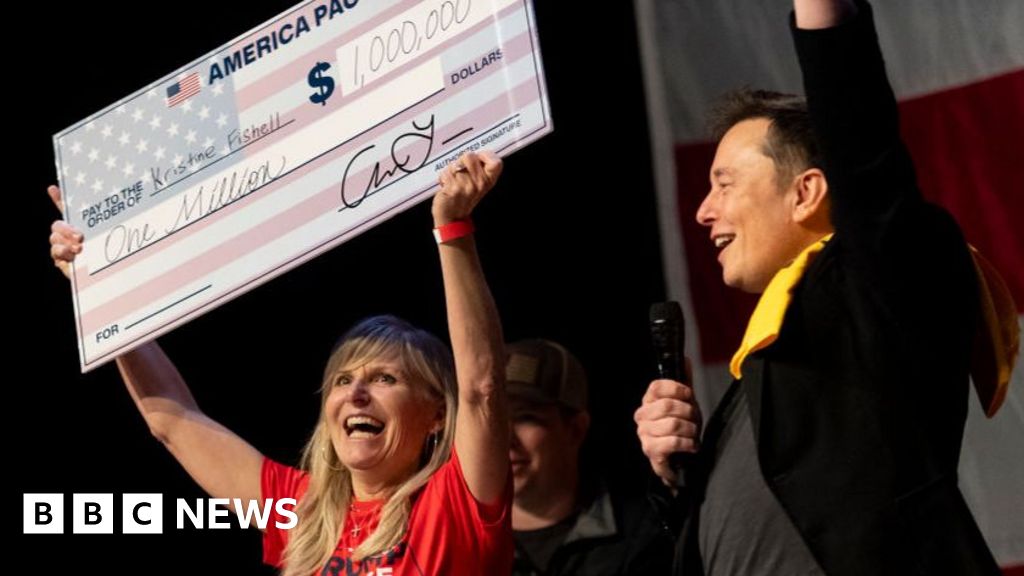“I believe [Elon] Musk’s offer is likely illegal,” said Paul Schiff Berman, the Walter S. Cox Professor of Law at the George Washington University.
He pointed to the US Code of electoral law, which states that anyone who “pays or offers to pay or accepts payment either for registration to vote or for voting” faces a potential $10,000 fine or a five-year prison sentence.
“His offer is only open to registered voters, so I think his offer runs afoul of this provision,” Mr Berman told the BBC.
The justice department declined to comment. The Federal Election Commission (FEC) has been approached for comment.
The strategy may be covered by a loophole, because no-one is being directly paid to register or vote, a former chairman of the FEC suggested.
Brad Smith told the New York Times the giveaway was “something of a grey area” but “not that close to the line.”
“He’s not paying them to register to vote. He’s paying them to sign a petition – and he wants only people who are registered to vote to sign the petition. So I think he comes out OK here,” he said.
But an election law professor at Northwestern University told the Associated Press that the context was important.
“It’s not quite the same as paying someone to vote, but you’re getting close enough (to polling day) that we worry about its legality,” Michael Kang said.
Adav Noti of the non-partisan Campaign Legal Center said Mr Musk’s scheme “violates federal law and is subject to civil or criminal enforcement by the Department of Justice”.
“It is illegal to give out money on the condition that recipients register as voters,” Mr Noti told the BBC.

